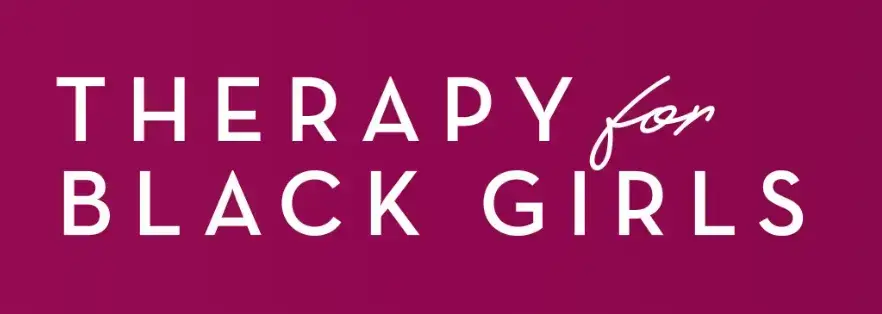Relationship Anxiety: 10 Signs & Tips
to Improve Your Relationship
Leave Your Info
Follow Us on Social 😊🧠
Relationship anxiety can make us feel confused and worried about even our healthiest, most fulfilling relationships, often taking away from the joy of love and connection. Relationship Anxiety is the persistent worry about your relationship’s stability, your partner’s fidelity, or the fear that it’s not ‘meant to be’, even when there aren’t signs that these worries are true. This anxiety can stem from our past experiences, personal insecurities, or even external ‘norms’ that we sometimes measure our relationship health with (i.e., tiktok relationships! Ah!)
To adequately address relationship anxiety, it’s important to understand the signs of ‘relationship anxiety’ and differentiate this from typical relationship stress. It’s about recognizing the signs within yourself or your partner and knowing that it’s a common, albeit challenging, part of many relationships.
Signs of Relationship Anxiety
1. Doubting Long-term Compatibility
One of the most telling signs of relationship anxiety is doubting whether you and your partner are truly meant to be together. This doubt can manifest as persistent questioning of your compatibility, despite evidence of a loving and functional relationship.
2. Overthinking Partner’s Actions
Analyzing every text, facial expression, or action of your partner can be exhausting. If you’re reading too much into the smallest of actions and always assuming the worst, it’s likely a manifestation of relationship anxiety.
3. Jealousy and Possessiveness
While a small amount of jealousy is normal in relationships, excessive jealousy and possessiveness can be signs of deeper anxiety about the relationship’s security or your partner’s commitment.
4. Difficulty Trusting Your Partner
Trust is the foundation of any relationship. If you find it hard to trust your partner, even without reason, it might be an indication of anxiety influencing your perception.
5. Sensitivity to Criticism
If you find yourself overly upset or defensive about any critique from your partner, it might be due to underlying anxiety. This sensitivity can hinder constructive communication and growth in the relationship.
6. Seeking Constant Reassurance
If you find yourself needing your partner to constantly reassure you of their love and commitment, it might be a sign of underlying anxiety. This need for reassurance goes beyond the occasional need for affirmation and can become a relentless pursuit for validation.
7. Fear of Being Too Vulnerable
Opening up and being vulnerable is essential in a relationship. However, if the fear of getting hurt keeps you from sharing your true self, it might be a sign of anxiety holding you back.
8. Avoidance of Serious Discussions
If the thought of discussing the future or addressing issues in the relationship fills you with dread, it might be due to anxiety. Avoiding these conversations can be a way of protecting yourself from potential pain or disappointment.
9. Worrying About Future Breakups
Constantly worrying about the relationship ending, even when things are going well, is a common sign of relationship anxiety. This fear can prevent you from fully enjoying the present moments with your partner.
10. Analyzing Every Argument
Disagreements are normal, but if you find yourself obsessing over every argument or disagreement, analyzing what was said, and worrying about what it means for your relationship, it’s likely a sign of anxiety.
The “why” Behind Relationship Anxiety
The Role of Past Relationships
Our past relationships can significantly influence how we perceive and react in our current ones. Understanding the impact of past relationships can help in addressing the root causes of your anxiety.
History of Generalized Anxiety
It’s not uncommon for those with generalized anxiety disorder, OCD or other worry/fear based mental health issues to feel more worried or hypervigilant around their relationship. This is a learned style of thinking, therefore, individual therapy for anxiety disorders would be a potentially helpful support.
Triggers in Relationship Anxiety
Identifying what triggers your anxiety is crucial. It could be certain behaviors from your partner, specific situations, or even dates that bring back memories of past traumas.

Personal Insecurities and Anxiety
Often, relationship anxiety stems from personal insecurities or a general tendency towards anxiety. Addressing these personal aspects can lead to a more secure and healthy relationship.
Tips to Decrease Relationship Anxiety
Improving Communication
- Active Listening Techniques
- Active listening is not just about hearing but understanding and empathizing with your partner. It involves giving them your full attention, acknowledging their feelings, and responding thoughtfully.
- Expressing Needs and Boundaries
- Clearly expressing your needs and boundaries is essential for a healthy relationship. It helps prevent misunderstandings and builds a foundation of respect and trust.
- Handling Criticism Constructively
- Learning to accept and handle criticism constructively can significantly reduce relationship anxiety. It involves understanding the intent behind the criticism and using it as an opportunity for growth
Building Trust & Security reduces relationship anxiety
- Establishing Mutual Respect
- Mutual respect is about valuing each other’s feelings, thoughts, and needs. It’s a crucial component of building trust and security in the relationship.
- Sharing Responsibilities in the Relationship
- Sharing responsibilities, from daily chores to making important decisions, can strengthen the bond and reduce anxiety by reinforcing the idea of teamwork and partnership.
- Creating a Safe Emotional Space
- A safe emotional space allows both partners to express their feelings, fears, and desires without judgment. It’s a space where vulnerability is welcomed and supported.
- Quality Time and Shared Activities
- Spending quality time together and engaging in shared activities can strengthen the bond and create positive memories, counteracting the negative thoughts and worries.
- Appreciating Each Other’s Differences
- Embracing and appreciating each other’s differences can lead to a deeper understanding and respect, reducing anxiety and fostering a stronger connection.
- Overcoming Challenges Together
- Facing and overcoming challenges together can reinforce the strength of the relationship and provide reassurance during moments of doubt.
Self-Care and Anxiety Management
- Individual Therapy Options
- Individual therapy can be a valuable tool in managing relationship anxiety. It provides a safe space to explore your feelings, understand your triggers, and develop coping strategies.
- Stress-Relief Activities
- Engaging in stress-relief activities, whether it’s exercise, meditation, or a hobby, can help manage anxiety levels and improve overall well-being.
- Maintaining Personal Identity
- Maintaining your personal identity, interests, and friendships outside of the relationship is vital. It helps prevent the relationship from becoming the sole focus of your life and source of happiness.
- Seeking Professional Help
- Individual counseling can complement couples therapy by addressing personal issues that might be contributing to the relationship anxiety.
- Consider Couples Therapy
- Understanding when and how couples therapy can benefit your relationship is important. It can provide the tools and guidance needed to navigate through the anxiety together.
Relationship Anxiety In a Nutshell
In conclusion, relationship anxiety is a common issue that many couples face. By recognizing the signs, understanding the underlying causes, and taking proactive steps to address it, you can improve your relationship and build a stronger, more secure bond with your partner.
Leave Your Info
FAQ's About Therapy in New Jersey
Where are you located? I need a therapist near me
We are fully online, which means that your therapy sessions will be help via video call on our HIPAA compliant Platform. Anyone in New Jersey can access our therapy services
How do I get started as a new client?
New Clients can reach out to us directly via call, text or email here:
Does my insurance cover my visits?
We provide”Courtesy Billing” for clients who are using the Out-of-network insurance benefits.
Our Insurance Page shares a small blurb about Why We Left Insurance Panels
What are out-of-network benefits?
When using OON benefits, patients typically pay the full cost of the treatment upfront and then file a claim with their insurance company for reimbursement. The amount of reimbursement can vary depending on the plan, but it can sometimes be as high as 90%. Call your insurance to see if you have OON benefits or click here to call us and we can check for you!
Is Online Therapy As Effective As In-Person Therapy?
Online therapy is essentially face-to-face counseling, just conducted remotely. Studies show that tele-therapy is as effective as traditional counseling. Professional organizations and state governments recognize its benefits and have set regulations for it. However, like any therapy, its success in achieving your goals isn’t guaranteed. It’s important to discuss with your therapist whether tele-therapy is working for you.
How Should I Prepare for My First Session?
Showing up is all that you need to do! But if you really want to get the most out of session, it could help to take some time to think about what you want from therapy. It helps to write down your goals, questions you have or things that you feel are important to share.
Do you offer traditional talk therapy?
of course! though we have some unconventional therapy approaches, we are rooted in evidenced based practices. Talk therapy is a major player in the therapy room! See What we Treat and Integrative Services for more information
Is Virtual Counseling Suitable for Everyone?
Online therapy might not be as effective for individuals with chronic suicidal thoughts, severe trauma, significant mental health history, or those recently in intensive care. Such cases often benefit more from traditional, in-person counseling. We’ll help you decide if our online services are right for you during your intake and evaluation.
Can I Change Therapists If I'm Not Happy?
Yes, you can switch therapists to another provider within the practice, or we can provide you a referral if preferred. We want to ensure that your time and effort are well spent, and that you are getting the relief you need, that’s why we work collaboratively with each other in the practice, as well as outside therapists who we know and trust.
How Do I Know If Therapy Is Helping?
You should feel like you’re making progress. Signs it’s working include:
- Feeling comfortable talking to your therapist
- Your therapist respects boundaries
- You’re moving towards your goals
- You feel listened to
You’re doing better in life - Your self-esteem is getting better
What is your cancellation policy?
We ask that clients provide at least 24 hours notice in the event that they need to cancel to avoid the 50% cancellation fee. we understand that life happens and do our best to be flexible & reschedule.
What Geographic Areas Are Served?
Currently, we serve clients in New Jersey and are expanding to other states as telehealth laws evolve. While telehealth offers the convenience of attending sessions from anywhere, state laws require clients to be in-state during their session.
Is Online Therapy Easy to Use for Non-Tech-Savvy People?
Yes, it’s pretty simple to access sessions. You’ll need basic internet skills, such as opening and visiting the patient link sent to you via email. It’s similar to video chatting like Facetime or Zoom. We can also walk you through it on the phone the first time to ensure a strong connection
What Questions Should I Ask My New Therapist?
Feel free to ask anything. Some good questions are:
- How often will we meet?
- What do you specialize in?
- What experience do you have with my issue?
- What outcomes can I expect?
- How will I know I’m progressing?
- How long do you usually work with clients?
- How will we set my treatment goals?
What is the difference between associate therapists & fully licensed therapists?
Our Qualifications:
Our founder, Rebecca Sidoti, is a highly qualified, state-licensed therapist and supervisor with extensive training in anxiety related disorders and innovative treatment such as Ketamine Therapy. Mind by Design Counseling adheres to standards set by the our governing counseling boards.
To see each providers credentials, training and licenses, visit our “Meet the Therapists” Page to learn more.
- LAC/LSW are therapists who may practice clinical work under the supervision of a fully licensed therapist.
- LPC/LCSW are therapists who have completed the necessary clinical hours post-graduation under supervision and can practice clinical work independently.










